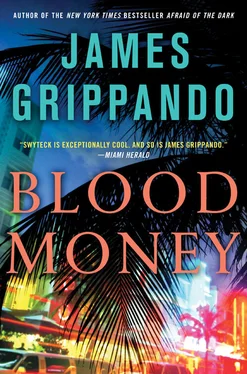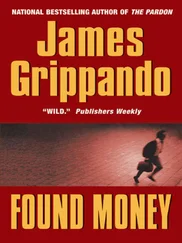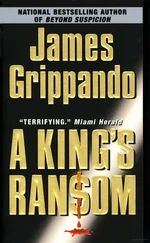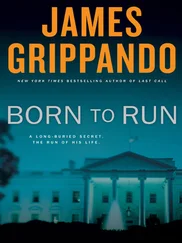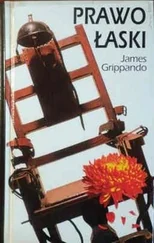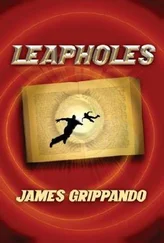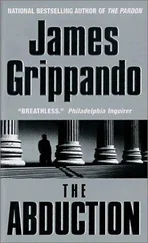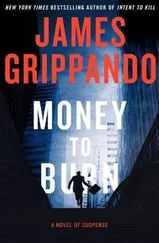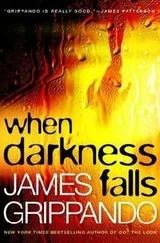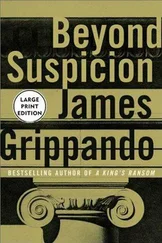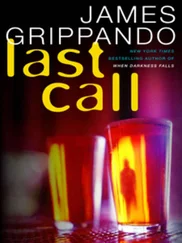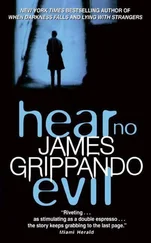James Grippando - Blood Money
Здесь есть возможность читать онлайн «James Grippando - Blood Money» весь текст электронной книги совершенно бесплатно (целиком полную версию без сокращений). В некоторых случаях можно слушать аудио, скачать через торрент в формате fb2 и присутствует краткое содержание. Жанр: Триллер, на английском языке. Описание произведения, (предисловие) а так же отзывы посетителей доступны на портале библиотеки ЛибКат.
- Название:Blood Money
- Автор:
- Жанр:
- Год:неизвестен
- ISBN:нет данных
- Рейтинг книги:5 / 5. Голосов: 1
-
Избранное:Добавить в избранное
- Отзывы:
-
Ваша оценка:
- 100
- 1
- 2
- 3
- 4
- 5
Blood Money: краткое содержание, описание и аннотация
Предлагаем к чтению аннотацию, описание, краткое содержание или предисловие (зависит от того, что написал сам автор книги «Blood Money»). Если вы не нашли необходимую информацию о книге — напишите в комментариях, мы постараемся отыскать её.
Blood Money — читать онлайн бесплатно полную книгу (весь текст) целиком
Ниже представлен текст книги, разбитый по страницам. Система сохранения места последней прочитанной страницы, позволяет с удобством читать онлайн бесплатно книгу «Blood Money», без необходимости каждый раз заново искать на чём Вы остановились. Поставьте закладку, и сможете в любой момент перейти на страницу, на которой закончили чтение.
Интервал:
Закладка:
James Grippando
Blood Money
Chapter One
" Mr. Swyteck, I’m calling from Judge Matthews’ chambers.”
Jack gripped his smartphone a little tighter. The judge’s assistant was on the line. Jack was on verdict watch at his Coconut Grove law office, eating lunch with his best friend, Theo Knight.
“Is there a verdict?”
“Yes, sir. There is a verdict.”
The words hit him like a 5-iron. This is it .
Criminal Case No. 2010-48-CF, State of Florida v. Sydney Louise Bennett , had spanned twenty-nine court days, plus two weeks of jury selection. Fifty-nine witnesses over eighteen days for the prosecution. Another forty-seven witnesses for the defense. The jury had been drawn from a pool in the Vero Beach area, a hundred miles away from the Miami Justice Building, after three years of intense pretrial publicity. The twelve selected to serve had been sequestered since day one, the week before Memorial Day. Deliberations had started on the Fourth of July, despite the holiday. The jury had been out for ten hours. Six hours longer than the jury in the O. J. Simpson trial-the trial of the other century.
“The verdict will be announced at two fifteen P.M.,” the assistant said.
Jack thanked her and hung up. He wanted to speak to his client, but she was in the detention center across the street-lucky Thirteenth Street, as it was known-from the courtroom where Jack had last seen her, where Judge Matthews had released the jury at nine A.M. to begin day two of deliberations. Jack wondered if Sydney had been biting her nails again. It was a nervous habit she’d started before the trial, sometime after her twenty-fourth birthday, the third she’d spent behind bars without bail. Her chestnut hair was two feet longer than when they’d first met, her prison pallor a few shades whiter.
“Showtime?” asked Theo.
Jack didn’t have to say anything; the news was all over his face. He speed dialed his cocounsel, but she’d already seen the “breaking development” on Twitter. Jack had assiduously avoided the social media during trial, but like everyone else under the age of thirty, Hannah Goldsmith was addicted to all electronic forms of information overload. Fortunately, she was as facile on her feet in a courtroom as she was with her thumbs on a keypad. They agreed to meet at the courthouse.
The moment Jack’s call ended, Theo asked the proverbial $64,000 question-one that only the jurors could answer.
“Is ten hours a good sign or a bad sign?”
Jack paused. Conventional wisdom among prosecutors and many defense lawyers is that quick verdicts mean a conviction. But most homicide cases in which the state seeks the death penalty aren’t based entirely on circumstantial evidence. And there was that well-known outlier-the Simpson case. Sydney was no celebrity, but comparisons in the media between the two high-profile murder trials were relentless. “Juani Cochran” they called her lawyer, the Latino version of Johnnie Cochran, even though Jack was only half Hispanic and had been raised a complete gringo, his Cuban American mother having died in childbirth. It was intended as an insult, triggered by a broken-English interview his abuela had given on talk radio in defense of a grandson who, even in her view, was on the wrong side of the case.
“I think it’s a good sign,” Jack said.
Theo glanced up from his iPhone, where the news was streaming in real time. “Talking heads are all saying guilty.”
As if that mattered. More than six hundred press passes had been issued for media coverage, and every major broadcast network had at least one reporter at the trial. HLN and MSNBC had built two-story air-conditioned structures across from the courthouse for reporters and crews. People had daily in-court coverage, splashing the case on its magazine cover in the midst of trial. Legal analysis on Breaking News Network extended from early morning through prime time. BNN’s regular nightly segments competed with network specials like “Inside the Trial of Sydney Bennett” on Dateline NBC and “Only Sydney Knows” on 48 Hours Mystery at CBS. Courtroom 3 had become another Miami tourist destination, like South Beach and the Seaquarium, with spectators coming from as far away as Japan to vie for the fifty seats available to the public. Verbal altercations were common, at least one having escalated to an all-out fistfight that required police intervention. Critics said it was the defense who courted the media. They neglected to mention that, unlike the prosecution, Jack had avoided all interviews and had issued not a single press release. Never in his fifteen years as a lawyer had he done television ads, billboards, or anything of the sort. Sydney Bennett was definitely not someone he had gone out looking to represent.
The case had found him.
Jack glanced at the flat-screen television on the wall. The anchor at BNN studios in New York-the ringmaster of “Sydney Watch Central”-was on the air. The excitement in her eyes made the banner at the bottom of the screen superfluous: JURY HAS REACHED A VERDICT.
Jack left his uneaten lunch on his desk, grabbed his briefcase, and hurried out to the car. Picketers had been marching outside his law office since the start of jury deliberations, but they were too busy scrambling to their vehicles, posters tucked under their arms, to pester Jack any longer. They’d already gotten word of the BNN news flash and knew the wait was over. Theo drove, so gravel flew when they pulled out of the parking lot. The picketers followed.
“You never asked me if Sydney did it,” Jack said.
Theo’s gaze remained fixed on the road. Theo Knight was Jack’s best friend, bartender, therapist, confidant, and sometime investigator. He was also a former client, a one-time gangbanger who easily could have ended up dead on the streets of Overtown or Liberty City. Today he was Jack’s self-appointed bodyguard, having insisted on driving Jack back to his office after closing arguments-after Jack’s second anonymous death threat, one that seemed a bit too credible.
“None of my business, dude,” said Theo.
That struck Jack as funny.
“Why you laugh?” asked Theo.
Sydney’s guilt or innocence had become the entire country’s business. Everyone professed to “know” she was the worst kind of killer.
“No reason,” said Jack.
They rode in silence, the afternoon sun glaring on the windshield. Jack thought of Emma. Almost three years old at the time of her death. Two years, nine months, and twenty-four days, if you believed the defense and placed the date of death on April 28. If you sided with the prosecution, there was no way to know how long Emma had lived. She was two years and. . something. The state had never proved a time of death. Or a cause of death. Even the alleged manner of death-homicide-was a matter of opinion. So many things, unproven. There was no disputing, however, that the badly decomposed remains of Sydney’s daughter had been found in a plastic garbage bag near the Florida Everglades. Emma would be almost six years old now, a beautiful little girl fresh out of kindergarten, full of personality, ready to crack the books, meet Junie B. Jones, and conquer the first grade. Jack wondered what she might be doing on this hot summer day with her mother or grandmother if things had not gone so wrong, if this nightmare had never happened. But it had happened. Nothing could change that. Across the nation, people who had never met Emma or Sydney, many who had never felt compelled to follow a courtroom trial in their life, were demanding justice.
“Justice for Emma.”
Throngs of spectators waited outside the Richard E. Gerstein Justice Building. Choppers from local television news stations circled overhead. Traffic around the courthouse was shut down. News of the impending two P.M. announcement had spread across the country. Jack’s gaze drifted up to the top floor of an unremarkable building that betrayed the glamorized shots of Miami on television and resembled the architecture of the former Soviet Union. Behind those walls, the jury would render its verdict, insulated from the onlookers who jostled with the media for a place to stand on the sidewalk and steps outside the courthouse. The growing buzz of activity was surreal, like armies of angry fire ants making quick work of fallen mangos, which were everywhere this time of year. Theo pulled up as close to the courthouse as the police perimeter would allow. Jack got out at the curb.
Читать дальшеИнтервал:
Закладка:
Похожие книги на «Blood Money»
Представляем Вашему вниманию похожие книги на «Blood Money» списком для выбора. Мы отобрали схожую по названию и смыслу литературу в надежде предоставить читателям больше вариантов отыскать новые, интересные, ещё непрочитанные произведения.
Обсуждение, отзывы о книге «Blood Money» и просто собственные мнения читателей. Оставьте ваши комментарии, напишите, что Вы думаете о произведении, его смысле или главных героях. Укажите что конкретно понравилось, а что нет, и почему Вы так считаете.
